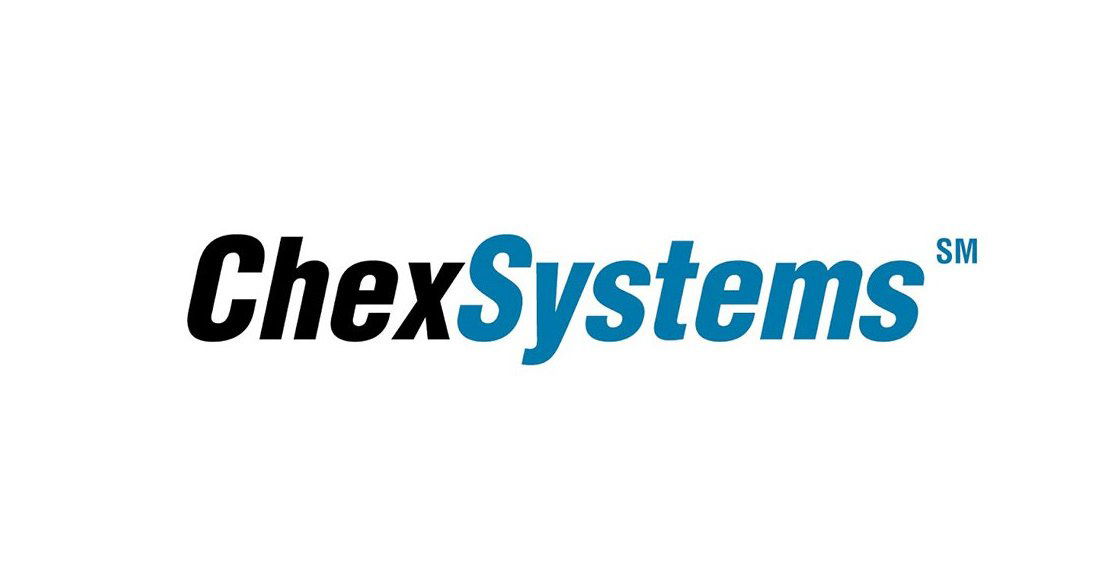There are many reasons for being denied a checking account. Banks still take a risk when they give you a checking account, even though they’re not lending you money. Understanding the most common reasons for being denied can help you ensure you get approved, or at least resolve the issues to get approved in the future.

How Banks Determine Checking Account Eligibility
Unlike when you apply for a credit card or loan, banks and credit unions don’t check your credit score to see if you qualify for a checking account. But many of them do typically check ChexSystems.
The same way credit bureaus track how you use your credit, ChexSystems is a consumer reporting agency that tracks how you use your bank accounts, otherwise known as your banking history.
If you have a history of irresponsibility with your checking account or any other account, banks may not issue you a new checking account because they consider you high-risk.
Banks and credit unions report issues to ChexSystems such as:
- Account abuse
- ATM abuse
- Bounced checks
- Unpaid negative balance
- Forced account closure
7 Reasons Banks Might Say No to Your Checking Account Application
Here are the seven most common reasons for being denied a checking account.
1. Too Many Overdrafts
It may not seem like a big deal to overdraft your checking account, especially if you bring it to a positive balance right away. But, it is mentioned in your ChexSystems report. Every time you go over your balance, it shows on the report. This tells banks and credit unions that you are irresponsible with your spending habits.
Even if overdrafts didn’t affect your ChexSystems score, overdraft fees are high and unnecessary. Keep track of how much money you have, and don’t spend more than that to increase your chances of getting a new checking account.
Don’t rely on overdraft protection, either. It’s a nice ’emergency’ feature, but you shouldn’t rely on it.
2. Bad Credit
Most banks don’t pull your credit report, but the reason many people have bad credit is due to their collection accounts. If you bounced checks or closed bank accounts with unpaid fees, banks often send them to collection agencies.
Knowing your credit history before you apply for a checking account is essential. You may find collections there from unpaid bank fees that you didn’t know existed. Everyone gets a free credit report every 12 months from each of the three major credit bureaus. So, take advantage of this to ensure any collections are taken care of.
3. Account Abuse
Checking and savings accounts have rules, just like your retirement account. If you don’t follow them consistently, it may become difficult to get a new checking account.
Account abuse can include any of the following actions:
- Making excessive transfers from a savings account (six per month is the limit).
- Constantly over drafting your checking account.
- Exceeding the ATM daily withdrawal limit repeatedly.
Account abuse shows banks that you aren’t financially responsible and won’t follow their rules. This makes it harder to open a new checking account, and you may be denied one.
4. Unpaid Fees
Not paying your bank fees is a red flag in the ChexSystems database. Whether you didn’t pay for a bounced check or closed an account, leaving unpaid fees, banks report them to ChexSystems.
One unpaid late fee may not be the end of the world when opening a new bank account. But if you have more than one, you’ll likely get denied a new account.
5. Too Many Bounced Checks
Bouncing checks repeatedly is another factor that appears in ChexSystems. One mistake may be overlooked. However, banks will likely deny you from opening a new checking account if you have a history of multiple bounced checks.
Banks and credit unions are looking for customers who can appropriately manage their account balance and spending. Without these money management skills, it’s hard for a bank or credit union to risk opening a new checking account on your behalf.
Bounced checks can stop you from getting a new checking account. They can also be expensive, since banks charge fees for every bounced check.
6. Errors On Your ChexSystems Report
Just like your credit report, ChexSystems reports can have errors. Whether the information was recorded incorrectly, reported wrongfully to ChexSystems, or another error occurred, it can cost you a new checking account.
Errors on the report are one of the top reasons for being denied a checking account. If you are denied, take advantage of free access to your ChexSystems report. Review it carefully and if there are errors, dispute them to set the record straight.
7. Suspected Fraud
There is no exception granted for any type of fraudulent activity on a checking account or another type of bank account. If financial institutions suspect you intentionally wrote bad checks or opened an account fraudulently, you won’t be able to open a new checking account anywhere.
Fraud leads to a low credit score and could also have more severe consequences, including jail time.
What To Do If You’re Denied A Checking Account
If you can’t get a new checking or savings account, you are entitled to know why. Once you know the reason, here are some simple steps to help resolve the issue.
Get Your ChexSystems Report
You get access to one free ChexSystems report every 12 months. But, if you applied for a checking account and were denied, the bank or credit union must provide you with access to the report used to make their decision.
Banks and credit unions may also receive information about your past banking history from Telecheck, Early Warning Services, or another consumer reporting agency.
Look For Administrative Errors
Look for any information on the report that isn’t accurate. Whether the clerk entered the information incorrectly or the bank reported the wrong information, the Fair Credit Reporting Act (FCRA) entitles you to dispute it and have it removed.
To dispute the errors, you may need supporting evidence, though. If you believe someone else’s bank account has been misreported on your ChexSystems report, provide the evidence to have it changed.
Fix The Relevant Issues
If you have issues on your ChexSystems report that are accurate, the good news is, you can fix them. For example, if you have any outstanding debt, pay it. If you overdraft your checking account, make sure it’s brought current.
Once you resolve the issues, talk to the reporting bank about removing the ‘red flag’ from your report. If left there, banks can see the issues for up to five years even if you resolve the problem.
If the bank or credit union won’t remove the issue, contact ChexSystems and prove that you settled the debt. Sometimes they’ll remove the red flag from your report too.
Apply For A Second Chance Checking Account
As the name suggests, a second chance checking account is a second chance at getting a checking account. These checking accounts typically come with monthly service fees. However, they allow you to upgrade to a free checking account after 12 months of good banking history.
According to the Federal Deposit Insurance Corp, about 20% of banks offer alternative checking accounts known as second-chance checking. They’re offered to people who don’t qualify for a standard bank account.
There are also numerous banks that don’t use ChexSystems. These banks are a great option for people with previous banking issues or those who have been denied a checking account already.
Before you apply for a second chance checking account, look at your options. A few key factors to consider include:
- Minimum balance requirements – Since second chance checking accounts are ‘high risk,’ most lenders require a higher minimum balance. Make sure you can meet the funding requirements before applying.
- Monthly fees – Most second chance checking accounts have high monthly fees without the chance to waive them at a specific balance. Fortunately, many banks are offering second chance accounts with no fees, such as Chime.
Use A Prepaid Card
Prepaid debit cards are also an option for people aren’t able to get a bank account. You can deposit money onto the card and use it just like a debit card from a bank or credit union. The only difference is you won’t have checks to write. However, you may be able to transfer money online and pay bills with it.
Before you open a prepaid card, find out which ATMs accept your card. You also need to know the method for depositing cash or checks and the monthly fees. Many cards don’t charge a fee if you keep a certain balance or use the card a certain number of times each month.
See also: Best Prepaid Debit Cards
Best Banks That Don’t Use ChexSystems
Current
- Build credit and earn points with every swipe
- No minimum opening deposit or maintenance fees
- Get paid up to 2 days faster
- No credit check or ChexSystems
SoFi
- Up to $300 sign-up bonus with direct deposit
- Earn up to 3.80% APY
- Over 55,000 fee-free ATMs
- Early pay with direct deposit
Chime
- Up to 3.75% APY on a high-yield savings account
- Over 60,000+ fee-free ATMs
- Up to $200 fee-free overdraft coverage
- Get paid up to 2 days early with direct deposit
Final Thoughts
If you’ve made mistakes and met one or more of the reasons for being denied a bank account, it’s not too late to fix them.
Just like your credit score changes constantly, so does your ChexSystems report. You may need to negotiate to get bad marks off your report. But, you can also improve your financial habits moving forward, so your report improves over time.
In the worst-case scenario, negative marks stay on your ChexSystems report for five years. But, it’s best to avoid this risk and give yourself the best chance at opening a new checking account when you need one.







